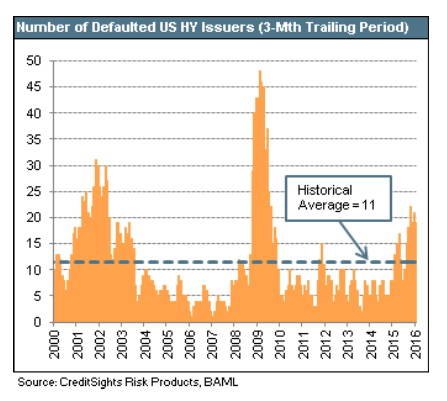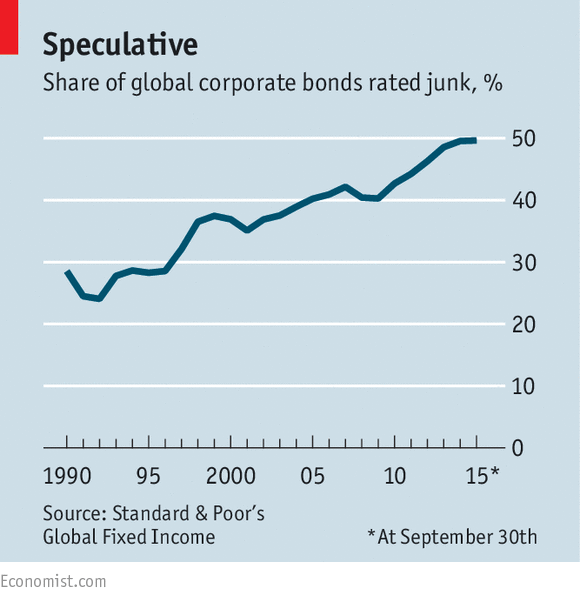This week’s chart comes courtesy of a post from our friends at FT Alphaville. The chart is from BAML and tracks the number of high yield defaults.

Default rates are actually just about normal at around 5% but the number of defaults shown in this charts is consistent with recessionary conditions in the past. The reason for that, obviously, is that the number of high yield issuers has expanded enormously. As the Alphaville post points out:
It is worth noting though that “the reason that default rates are still below the historical average is that the number of US HY issuers has almost doubled over the 16-year period, from just over 600 in [Q1 2000] to close to 1,100 today.”
So what’s more important? The level or the rate? I’m not sure we know the answer to that yet but there are some interesting angles. For instance, is the rise in junk issuers a matter of all corporate issuers getting downgraded? In other words, is the rate low because a lot of formerly investment grade issuers are now junk? If that is the case, then the level might be more important. Or is it that a lot more companies now have access to the junk bond market who previously were either unable to borrow or depended on banks? If that’s the case, then the rate might be more important.
Unfortunately, the former appears to be the reality:

We’ve seen a deterioration in corporate balance sheets over the years and especially recently as companies have issued debt to buy back stock.
The rise in junk defaults is still at this point primarily an energy story and as oil prices have recovered from the lows so has the junk bond market. Inflows to the junk bond ETFs over the last month have been setting records as investors bet the worst is over. That could be true I suppose but it is likely dependent to some degree on the price of oil continuing its recent rise. And that is likely a function, at least partially, of the direction of the dollar. So to some degree buying junk bonds right now is a bet that the dollar will continue to weaken and oil prices rise. One does wonder though at what point higher oil prices are such an economic headwind that they start to affect other parts of the junk bond market.
Part of our investment process is to track credit spreads and they have narrowed recently and junk bonds and stocks have risen together. But the economic data has not improved, the economy tracking at a sub-1% growth rate in the first quarter. Higher oil prices are probably not going to make that better. Junk bond buyer beware.
